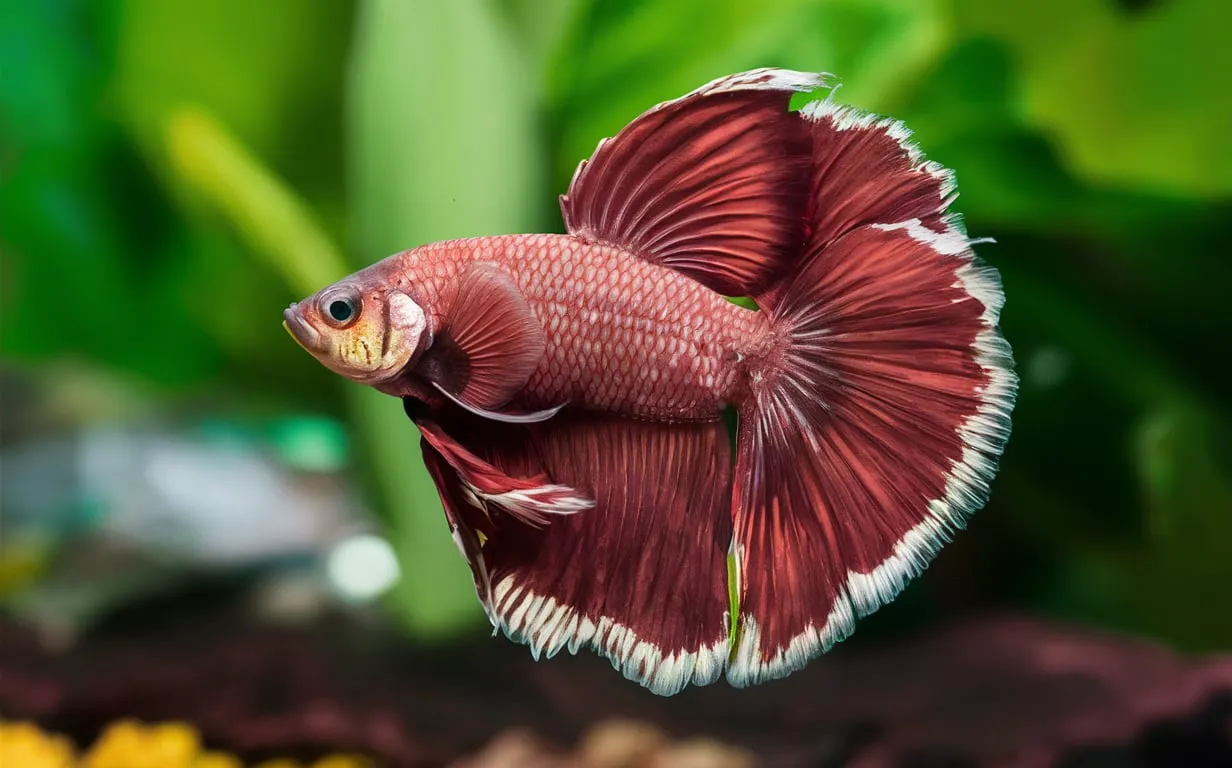As a betta fish owner, it’s important to be able to recognize the signs of a sick betta so you can take prompt action to address any health issues. Bettas, also known as Siamese fighting fish, are delicate creatures that require attentive care to thrive. In this comprehensive guide, we’ll explore the common signs of a sick betta and provide expert advice on how to help your Betta Fish recover.

Common Signs of a Sick Betta Fish
1. Lethargy and Lack of Appetite
One of the most obvious signs that your betta fish is unhappy is if it appears lethargic and disinterested in its food. A healthy betta should be active, energetic, and eagerly accept their food. If your betta is lying at the bottom of the tank, hiding, or refusing to eat, it’s a clear indication that something is friends.
2. Abnormal Coloration or Fine Damage
Healthy bettas should have vibrant, bold colors and flowing, undamaged fins. If you notice your betta’s colors fading, becoming dull or discolored, or if its fins appear frayed, torn, or clamped, it may be a sign of illness.
3. Unusual Swimming Patterns
Bettas typically swim with grace and confidence. If your betta is swimming erratically, listing to one side, or having difficulty maintaining its balance, it could be a symptom of a health problem.
4. Visible Parasites or Fungal Growths
In some cases, you may be able to visually identify the cause of your betta’s illness. Look for white spots, fuzzy growths, or external parasites that may be affecting your fish’s health.
5. Labored Breathing
A healthy betta should have a calm, smooth breathing pattern. If you notice your betta appears to be wasting for air or breathing rapidly, it could be a sign of water quality issues or an underlying health problem.
Diagnosing and Treating a Sick Betta Fish
If you notice any of these signs in your betta, it’s important to take action quickly to identify and address the underlying cause. Here are some steps you can take:
- Assess the Tank Conditions : Ensure that your betta’s tank has optimal water parameters, such as the correct pH, temperature, and ammonia/nitrite levels. Poor water quality can be a significant contributor to betta health issues.
- Perform a Water Change : Depending on the severity of the issue, a partial water change of 25-50% may help improve the water conditions and alleviate stress on your betta.
- Quarantine the Sick Fish : If possible, move the affected betta to a separate, clean tank to prevent the spread of any potential contagions to your other fish.
- Identify the Illness : Carefully observe your betta’s symptoms and consult aquarium resources or a veterinarian to determine the specific illness or condition affecting your fish.
- Treat the Illness Appropriately : Once you’ve identified the problem, follow the recommended treatment plan, which may involve medications, water conditioners, or other specialized care.
How Can I Prevent Common Diseases In Betta ish?
Here are some tips to help prevent common diseases in betta fish:
Maintain proper water quality:
- Perform regular partial water changes (25-50%) 1-2 times per week.
- Use a water conditioner to remove chlorine, heavy metals, and neutralize ammonia.
- Test the water parameters (pH, ammonia, nitrites, nitrates) regularly and keep them within the ideal range for bettas.
Provide a suitable tank size:
- Bettas do best in a tank of at least 2.5 gallons, with a gentle filtration system.
- Avoid overcrowding, as this can stress the fish and make them more susceptible to illness.
Maintain proper water temperature:
- Bettas prefer a water temperature between 78-82°F (25.5-27.8°C).
- Use a reliable heater and thermometer to monitor and maintain the temperature.
Feed a balanced and appropriate diet:
- Provide a varied diet of high-quality betta pellets, flakes, or frozen/freeze-dried foods.
- Avoid overfeeding, as this can lead to digestive issues.
Quarantine new fish:
- Introduce new bettas to your tank by first placing them in a separate quarantine tank for 2-4 weeks.
- This helps prevent the introduction of diseases or parasites to your existing fish.
Observe your betta’s behavior and appearance:
- Look for signs of illness, such as lethargy, loss of appetite, fine or skin lesions, or unusual swimming patterns.
- Address any issues promptly to prevent the spread of disease.
Clean the tank regularly:
- Vacuum the substrate, remove uneaten food, and perform partial water changes.
- Maintain a clean, stress-free environment for your betta.
By following these preventive measures, you can significantly reduce the risk of common betta fish diseases and keep your pet healthy and thriving.
Conclution
Remember, prompt action and diligent observation are key to helping a sick betta recover. By addressing the root cause and providing the necessary care, you can help your betta fish regain its health and thrive in your aquarium.

Related Posts
Female Betta Care: A Comprehensive Guide
Understanding Betta Fish Water
What Are Clamped Fins On Betta?